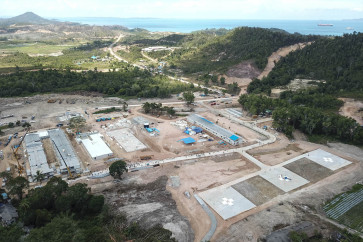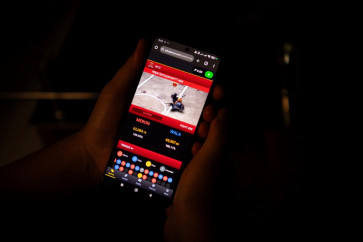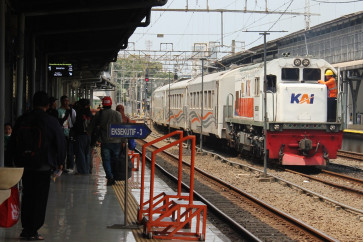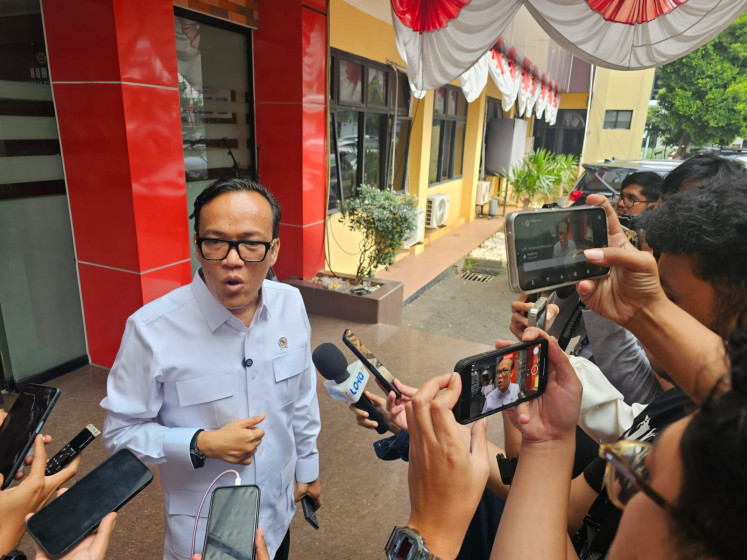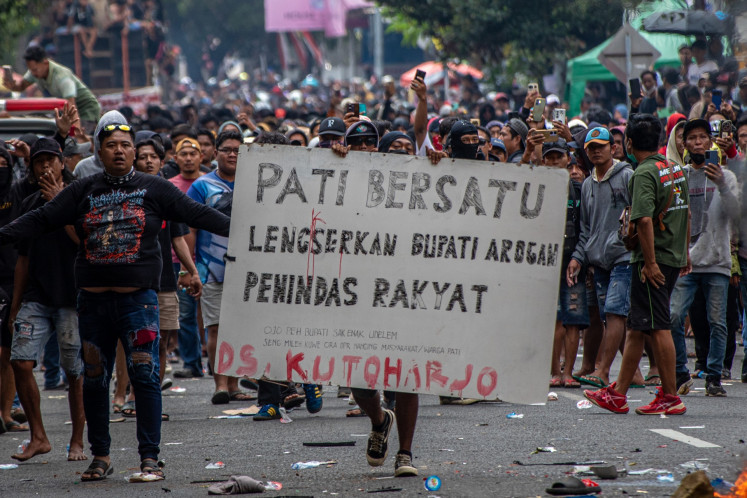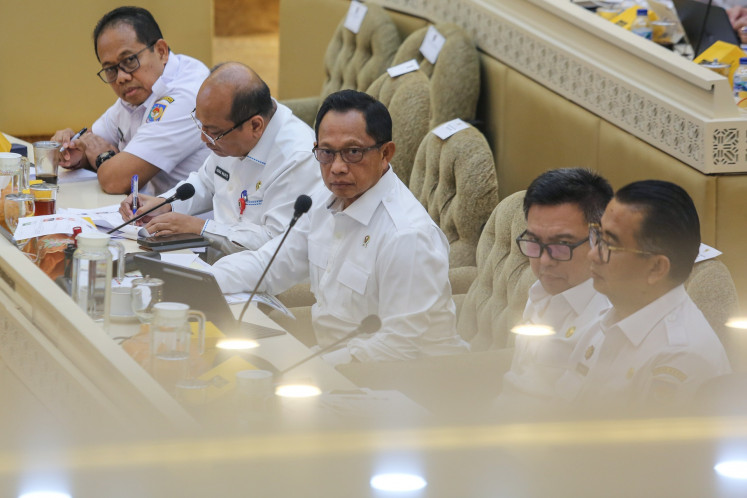Popular Reads
Top Results
Can't find what you're looking for?
View all search resultsPopular Reads
Top Results
Can't find what you're looking for?
View all search resultsMAPI to spend Rp 600b, open 300 new stores
JP/J
Change text size
Gift Premium Articles
to Anyone
JP/J. Adiguna
Publicly listed retailer PT Mitra Adi Perkasa (MAPI), with more than 100 international brand licenses, plans to allocate Rp 600 billion (US$662.9 million) in capital expenditures to catalyze a 25 percent increase in their brand portfolio this year.
The company plans to add between 250 and 300 more stores — for both the current brands in their portfolio and future acquisitions — to their existing 1,057 stores as of the end of January.
This year’s expansions follow on the heels of a 42,000-square-meter expansion last year, which enabled the retailer to augment the number of their stores by approximately 190 outlets.
“Our target this year is similar to that of the previous year, which is a 20 to 25 percent growth rate achieved through expanding total store space by 60,000 square meters,” MAPI corporate secretary and investor relations head Fetty Kwartati said.
Fetty added that the company plans to tap into their internal cash to fund the expansions, although the company still has “credit facilities from the bank that it could capitalize on in case it needs a boost”.
“We will use our internal cash flow and, currently, our net debt-to-equity [ratio] is around 50 percent, which we plan to maintain at that level. We have long-term plans to reduce leverage,” she further said, adding that MAPI did not plan to up the number of floating shares, presently at 44 percent.
The retailer also has no plans to expand the production capacity of their apparel factory, given that the factory was sufficiently supplying the internal requirements of several brands, such as Reebok and Converse, which have granted licensing rights to the retailer.
“The production volume is already maximized. The 550 machines could manufacture 200,000 pieces of apparel pieces per month,” explained Fetty.
Strategically, she continued, MAPI would “stay focused on upper-middle class consumers”, a move which would be strengthened by the introduction of fresh sports and fashion brands into the local market starting from the first quarter of 2012 and onwards.
“Some of the negotiations [with the brands’ principals] are in the final stages, while others are in the process of finalization,” she noted, although declining to specify the new brands.
Last year, MAPI introduced seven new fashion labels, including youth-oriented apparel Bershka and upper-end brand BCBG Max Azria, into the Indonesian market.
“Since the brand mindset of Indonesians tends to lean to European and American brands, the [new ones] automatically come from those regions,” Fetty hinted.
MAPI had no plans yet to introduce new brands into their food and beverage portfolio, however, citing plans to maximize on the youngest division in the company portfolio before adding new brands.
Besides Starbucks, which has a total of 120 shops across 10 cities, the retailer also oversees other brands, including Domino’s Pizza and Cold Stone Creamery.
 Yet, MAPI plans to open 30 additional Starbucks coffee shops, including the franchises’ first shops in Palembang and Solo, she added.
Yet, MAPI plans to open 30 additional Starbucks coffee shops, including the franchises’ first shops in Palembang and Solo, she added.
Last year, the food and beverage segment alone accounted for 12 percent of revenues, while department stores, such as Debenhams and Sogo, in addition to specialty stores, contributed 26 percent and 59 percent respectively. The remaining three percent came from other cash flow sources.
Fetty added that the retailer witnessed a 25 percent growth last year, booking Rp 5.88 trillion in un-audited net sales compared to Rp 4.71 trillion in 2010. The company will disclose their full 2011 financial performance figures around March 2012.
Although the greatest revenue contribution still came from Jakarta and Java, the company also witnessed “surprising“ sales growth in Maluku and Papua.
“This is probably because there aren’t many modern retailers yet and that’s why those markets responded positively,” she commented, adding that the retailer detected high growth from their outlets in the cities of Makassar in Sulawesi and Balikpapan in Kalimantan.
“Of course, the first tier cities, besides Jakarta, include Surabaya, Bali and Medan. Bandung performs strongly as well because the opening of our sports, fashion and food and beverage outlets has always received a positive response,” she told the Post.
She added that although the economic growth in Indonesia is expected to slow this year, sales would remain strong given that the country’s consumer middle class would continue growing both in size and income.
Bank Indonesia pegged economic growth at 6.3 percent this year, a 0.2 point drop from last year’s growth figure.
“This middle class is also very brand conscious, exhibiting brand loyalty,” she added.



